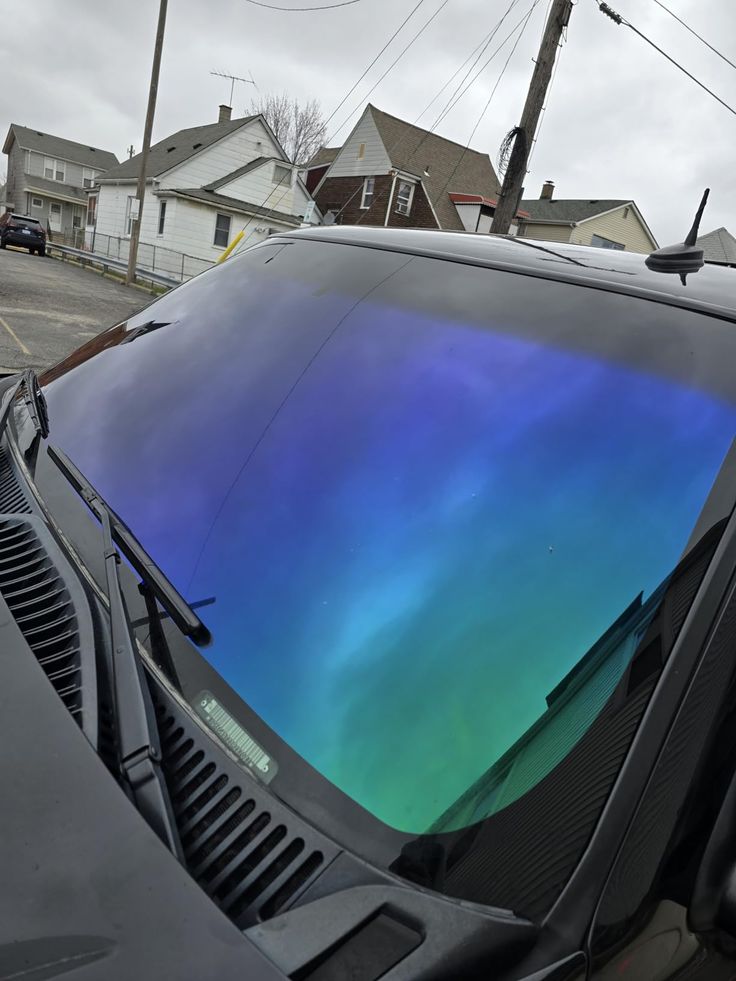Repair instructions
Why Is There an Oily Film on My New Windshield?
Overview:
An oily film can develop on windshields due to various factors that burn off oily contaminants on the surface when exposed to heat. This issue can happen with both new and older windshields, leading to reduced visibility. Common causes include clogged air filters, exposure to environmental elements, sunlight, heater core leaks, off-gassing from materials, and smoking inside the car. Fortunately, this film can be cleaned effectively, and steps can be taken to prevent its buildup.

What Causes Oily Films on Windshields?
There are several factors that can lead to the formation of oily films on your windshield:
- Clogged Air Filter: A blocked air filter restricts airflow, increasing the cabin’s temperature and allowing oily films to develop more easily on your windshield.
- Contamination From the Elements: External conditions such as heavy rain, intense sunlight, smog, or tree sap can leave oily residues on your windshield, contributing to film buildup.
- Exposure to Sunlight: The sun’s heat burns dirt and oils on your windshield, leading to the formation of an oily film, especially on the interior surface. The hotter it gets, the more airborne contaminants are released into your cabin.
- Heater Core Leak: If your vehicle’s heater core leaks, moisture can build up inside the cabin, causing windows to fog and increasing the chances of oily film buildup.
- Off-Gassing: Off-gassing from new car materials (plastics, upholstery) releases chemicals that can stick to your windshield and leave a hazy, oily film. These gases can also be harmful to your health and the environment.
- Smoking or Vaping: Smoke residue from cigarettes or vapes is one of the most common causes of oily films on windshields, as it leaves behind a greasy residue that can accumulate quickly.
How to Safely Remove Oily Film from Your Windshield
To effectively clean off the oily film, consider using the following methods:
- Vinegar and Water Solution: Mix one cup of distilled water, two tablespoons of white vinegar, and one cup of isopropyl alcohol. This solution can cut through the oily residue. Apply it to the windshield and wipe off with a microfiber towel for a streak-free finish.
- Glass Cleaners: Non-ammonia, aerosol-based glass cleaners are designed for windshields. They’re safe and effective at removing oily residues—just be cautious and avoid contact with your eyes or mouth.
- Magic Eraser: A wet magic eraser is great for removing stubborn stains like oil and smoke residue. Lightly scrub the affected area for quick results.
How to Prevent Oily Films from Forming on Your Windshield
Taking proactive steps can reduce the chances of an oily film developing in the future:
- Regularly Clean Your Windshield: Keeping the windshield clean prevents dirt and oils from accumulating. Ensure your windshield washer fluid is topped off so your wipers can effectively clean off grime without spreading it around.
- Replace Worn Wiper Blades: Over time, wiper blades can accumulate dirt, making it more likely they’ll smear contaminants across the windshield. Regularly replace your wiper blades (every six months or as needed) to maintain optimal performance.
- Use Sunshades: Sunshades help block direct sunlight from hitting your windshield, reducing both heat buildup and the likelihood of oily film formation. These affordable accessories also keep your cabin cooler.
- Mind the Weather: Be aware of weather conditions. Prolonged exposure to extreme weather, such as intense sun or acid rain, can lead to contamination on your windshield. Using sunshades and avoiding long exposure to harsh conditions can help prevent film buildup.
- Avoid Smoking in Your Car: Since smoking contributes to oily film on windshields, refrain from smoking inside your vehicle. If you must smoke, step outside to keep your interior clean.
Maintain Your Windshield with New Wiper Blades and Sunshades
To combat the oily film issue, ensure you are using high-quality, properly sized wiper blades and replace them regularly. Investing in sunshades will also help protect your windshield from harmful UV rays and keep the cabin temperature in check. This will reduce the likelihood of oil film buildup and keep your view clear and safe.
